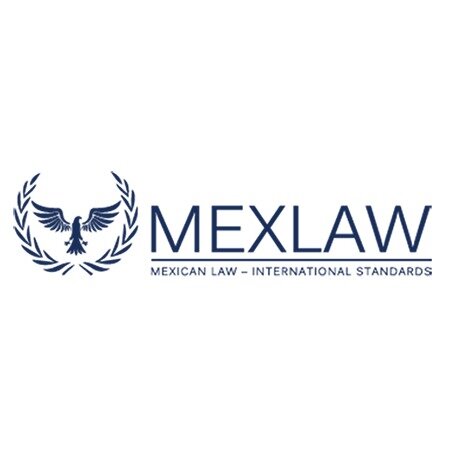Best Water Law Lawyers in Mexico
Share your needs with us, get contacted by law firms.
Free. Takes 2 min.
Or refine your search by selecting a city:
List of the best lawyers in Mexico
About Water Law in Mexico
Water Law in Mexico is a specialized area of legal practice that governs the management, distribution, and use of water resources throughout the country. The legal framework covers surface water, groundwater, rivers, lakes, and wetlands, and is underpinned by federal, state, and local regulations. The core principles of Water Law in Mexico emphasize the public ownership of water resources, environmental protection, equitable distribution, and the sustainable use of water to meet the needs of the population and industry. The primary legislation is the National Waters Law (Ley de Aguas Nacionales), and enforcement is overseen by national and regional government bodies.
Why You May Need a Lawyer
There are several scenarios where legal assistance in Water Law may be crucial. Some common situations include:
- Securing water use concessions or permits for agriculture, industry, or domestic use
- Resolving disputes related to water boundaries, access, and rights between private parties or with government authorities
- Facing enforcement actions or sanctions from regulatory bodies for alleged violations of water regulations
- Dealing with contamination issues affecting local water sources and needing advice on liability and remediation responsibilities
- Participating in infrastructure projects that impact water resources and require environmental and social impact assessments
- Seeking guidance on water-related aspects of property transactions, especially in rural or development zones
- Pursuing compensation or legal remedies due to water scarcity or quality issues affecting health, livelihoods, or business operations
Local Laws Overview
The central piece of legislation for water management in Mexico is the National Waters Law (Ley de Aguas Nacionales), enacted to regulate the extraction, use, exploitation, and protection of national water resources. The law classifies water as national property and establishes permitting systems for its use. Key aspects include:
- Water concessions are required for most non-domestic uses; these are issued by the National Water Commission (CONAGUA)
- Strict requirements exist for water quality control, especially regarding wastewater discharge and contamination prevention
- The law provides for public participation in water management through basin councils and promotes sustainable use practices
- There are penalties for illegal water extraction, pollution, or overuse, which can include fines, suspension of activities, and criminal charges
- State and municipal governments can also enact complementary regulations reflecting local water needs and challenges
- Specific rules apply to the management of groundwater, stormwater, and water for indigenous and agricultural communities
Frequently Asked Questions
What authority manages national water resources in Mexico?
National water resources are managed primarily by the National Water Commission (CONAGUA), a federal body responsible for implementing water policies, issuing permits, enforcing regulations, and supervising water usage across the country.
How can I obtain a permit to use water for agricultural or industrial purposes?
To secure a water concession, you must submit an application to CONAGUA, providing documentation regarding the intended use, location, quantity, and technical justifications. The process may involve environmental impact assessments and consultation with local communities.
Is it illegal to extract groundwater without a permit?
Yes, unauthorized extraction of groundwater is illegal in Mexico and can result in significant fines, the closure of wells, or criminal penalties depending on the severity of the offense.
What should I do if my property is affected by water contamination?
If your property is impacted by water contamination, you should contact environmental authorities and may also seek legal advice to pursue compensation, remediation, or sanctions against those responsible for the pollution.
Are water rights transferable between parties?
Water concessions can, in some cases, be transferred to another party through a legal process overseen by CONAGUA, but transfers are subject to regulatory approval and must comply with existing water use obligations and environmental safeguards.
What role do indigenous communities play in water management?
Indigenous communities have recognized rights to water, and their participation is protected by law. They may be involved in local water planning and may also hold specific concessions for traditional uses.
How can I challenge a decision by CONAGUA?
You can appeal administrative decisions made by CONAGUA through internal review processes, administrative courts, or, in some cases, file an amparo (constitutional protection) if your fundamental rights are affected.
Do I need a permit to discharge treated wastewater?
Yes, discharging treated or untreated wastewater into national water bodies requires a specific permit from CONAGUA. Strict requirements must be met regarding the quality and quantity of discharged water.
What penalties apply for illegal use or pollution of water?
Penalties can include fines, suspension of water use rights, closure of facilities, remediation orders, and criminal liability in cases involving harm to public health or the environment.
Who is responsible for water supply and sanitation in my community?
Water supply and sanitation services are usually managed by state or municipal agencies, though oversight and regulation are shared with federal authorities such as CONAGUA.
Additional Resources
If you need more information or assistance, consider reaching out to the following organizations and resources:
- National Water Commission (CONAGUA) - Oversees water management, concessions, and enforcement across Mexico
- Federal Environmental Protection Agency (PROFEPA) - Responsible for monitoring and enforcing environmental compliance, including water contamination
- State and municipal water agencies - Manage local water supply, sanitation, and some aspects of regulation
- Environmental and legal NGOs - Organizations such as CEMDA and others provide guidance and advocacy for water-related rights and sustainability
- Legal directories - To locate attorneys who specialize in Water Law issues in your region
Next Steps
If you believe you need legal assistance regarding Water Law in Mexico, consider the following steps:
- Collect all relevant documents concerning your issue, such as permits, official correspondence, technical reports, or evidence of contamination or disputes.
- Contact a lawyer with experience in Water Law or environmental matters for a consultation. Prepare a clear summary of your situation and your goals for the legal process.
- Request a detailed assessment of your legal position, possible strategies, and the expected timeline or costs associated with your case.
- Keep clear records of all communications and actions related to your water issue to support your case if formal proceedings become necessary.
- Stay informed about your rights and responsibilities under federal and local water laws, and actively engage with your community or local stakeholders where relevant.
By following these steps and working with qualified professionals, you can better navigate the complexities of Water Law in Mexico and protect your interests, your property, and the environment.
Lawzana helps you find the best lawyers and law firms in Mexico through a curated and pre-screened list of qualified legal professionals. Our platform offers rankings and detailed profiles of attorneys and law firms, allowing you to compare based on practice areas, including Water Law, experience, and client feedback.
Each profile includes a description of the firm's areas of practice, client reviews, team members and partners, year of establishment, spoken languages, office locations, contact information, social media presence, and any published articles or resources. Most firms on our platform speak English and are experienced in both local and international legal matters.
Get a quote from top-rated law firms in Mexico — quickly, securely, and without unnecessary hassle.
Disclaimer:
The information provided on this page is for general informational purposes only and does not constitute legal advice. While we strive to ensure the accuracy and relevance of the content, legal information may change over time, and interpretations of the law can vary. You should always consult with a qualified legal professional for advice specific to your situation.
We disclaim all liability for actions taken or not taken based on the content of this page. If you believe any information is incorrect or outdated, please contact us, and we will review and update it where appropriate.
Browse water law law firms by city in Mexico
Refine your search by selecting a city.

















